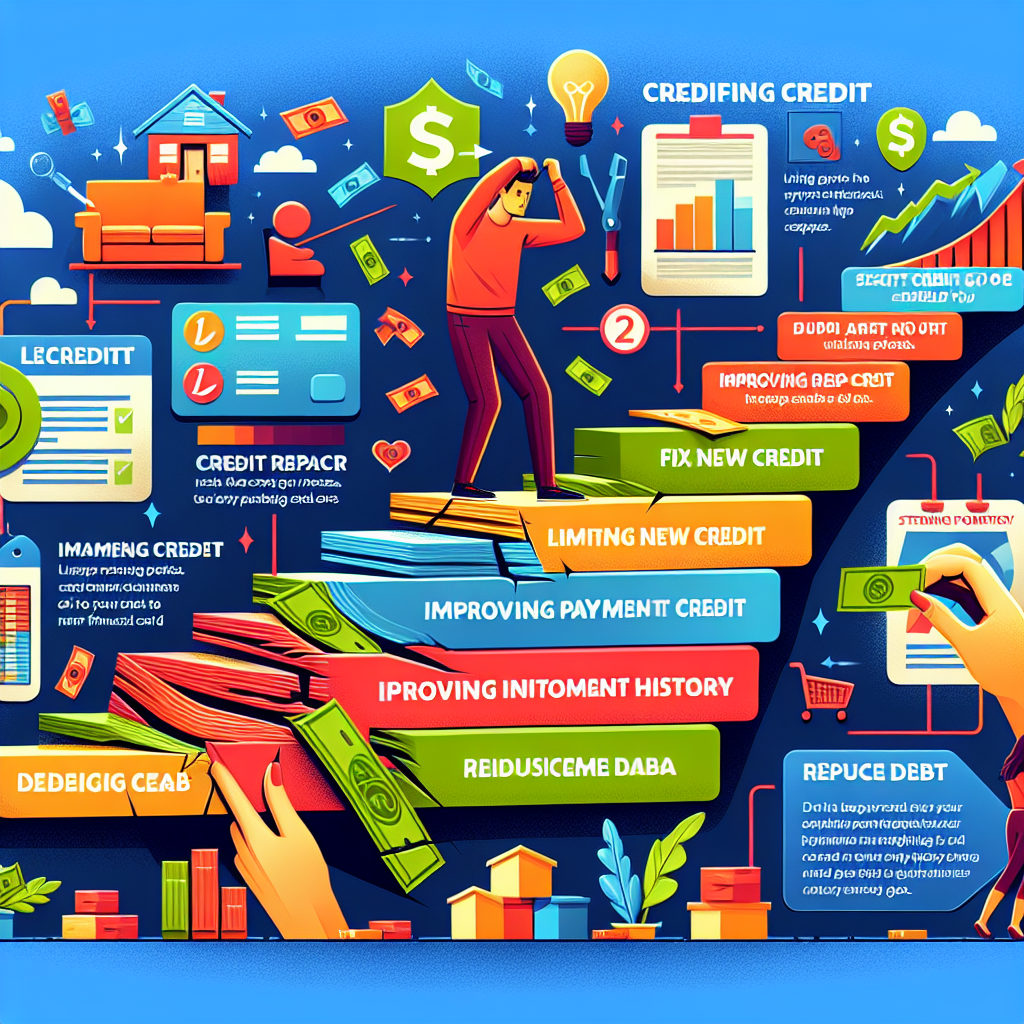In today’s economic climate, having a good credit score is more important than ever. From securing lower interest rates on loans to being approved for rental applications, a healthy credit profile can open doors to numerous financial opportunities. If you’re struggling with your credit score, fear not — credit repair can help you achieve your financial goals. In this article, we will explore the process of credit repair and how it can set you on the path toward financial success.
Understanding Credit Scores: Why They Matter
Before delving into credit repair, it’s essential to understand what credit scores are and why they matter. A credit score is a three-digit number that reflects your creditworthiness based on your credit history. It ranges from 300 to 850, with higher scores indicating lower risk to lenders.
The Impact of Credit Scores on Financial Opportunities
Having a better credit score means you can:
- Secure Lower Interest Rates: Better credit scores typically result in lower interest rates on mortgages, car loans, and credit cards. This can save you thousands of dollars over the life of a loan.
- Qualify for Better Loan Options: Lenders are more likely to offer favorable loan terms (like lower fees or longer repayment periods) to high-scoring individuals.
- Enhance Your Renting Opportunities: Many landlords check credit scores as part of their tenant evaluation process. A strong score can give you an edge in rental negotiations.
What is Credit Repair?
Credit repair is the process of improving your credit score by addressing negative items on your credit report and ensuring your credit history is accurate. This can involve disputing errors, negotiating with creditors, and implementing financial strategies to bolster your score.
Key Strategies for Credit Repair
-
Review Your Credit Reports: Obtain free copies of your credit reports from all three major credit bureaus (Equifax, Experian, and TransUnion). Identify any inaccuracies or negative items that can be disputed.
-
Dispute Inaccuracies: If you find any errors on your credit reports, dispute them with the relevant credit bureau. Be prepared to provide evidence supporting your claim.
-
Pay Down Existing Debt: High credit utilization negatively impacts your score. Focus on paying down credit card balances and other debts.
-
Make Payments on Time: One of the most significant factors influencing your credit score is your payment history. Ensure you pay all your debts on time and consider setting up automatic payments for bills.
- Limit New Credit Applications: Each time you apply for new credit, a hard inquiry is generated, which can temporarily lower your credit score. Be strategic about when you apply for new credit.
The Benefits of Professional Credit Repair Services
While you can certainly undertake credit repair on your own, many individuals turn to professional credit repair services. These companies specialize in helping individuals clean up their credit reports and boost their scores.
Why Consider Professional Help?
- Expertise and Experience: Credit repair professionals know the ins and outs of credit laws and can navigate complex credit issues effectively.
- Time Savings: Repairing your credit can be time-consuming. Professionals can do this work on your behalf, allowing you to focus on other financial goals.
- Customized Action Plans: Credit repair companies often offer tailored plans based on your specific credit situation, helping you target areas that need improvement.
Setting and Achieving Your Financial Goals with Enhanced Credit
Once you’ve undertaken credit repair, you can begin setting and achieving your financial goals more effectively.
Financial Goals You Can Achieve with a Better Credit Score
-
Home Ownership: A good credit score can help you get pre-approved for a mortgage with favorable terms, thus making buying a home a reality.
-
Starting a Business: A solid credit score can improve your chances of qualifying for a small business loan, providing the capital you need to launch your venture.
-
Lower Insurance Premiums: Many insurance companies use credit scores to determine premiums. A better score can result in lower rates for auto and homeowner’s insurance.
- Improving Overall Financial Health: With a higher credit score, you may find it easier to secure credit cards and personal loans with better terms, facilitating a healthier financial lifestyle.
Conclusion
Credit repair is not just about fixing your credit score; it’s about paving the way for a brighter financial future. By understanding the importance of credit, employing effective strategies for repair, and potentially seeking professional help, you can set yourself on a course to achieve your financial goals. Whether it’s buying a home, starting a business, or simply enjoying lower interest rates, a good credit score is a powerful tool in your financial arsenal. Start your credit repair journey today and unlock your financial potential!

